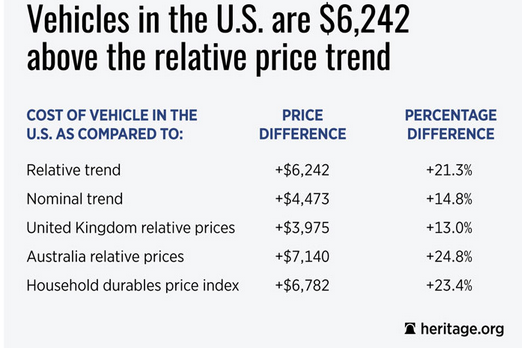Yesterday The Washington Times posted an article about the Trump administration’s decision regarding CAFE (Corporate Average Fuel Economy) standards. The administration is freezing current gas mileage requirements rather than instituting the drastic standards put in place just before President Obama left office. Regulators required that automakers achieve an average 54.5 mpg by 2025, but they relaxed that target to between 50.8 mpg and 52.6 mpg last year. The argument against the draconian standards was that they would increase the price of a car by almost $2000 and create unemployment in the auto industry. The harsh standards would also make our roads less safe.
The Washington Times reports:
A draft of a regulation prepared this summer would freeze an Obama-era program that was intended to improve fuel efficiency and cut pollution.
In excerpts obtained by The Associated Press, the administration argues that heavier vehicles are safer than lighter ones and that people would drive more — and be exposed to increased risk — if their cars get better mileage.
Until we can come up with a material to make cars that is light, strong, and inexpensive, heavier vehicles are safer. American roads have many semi-trailers and trucks on them. A lightweight vehicle does not have a chance of survival in a crash with a heavier vehicle. Fuel economy is a good thing, but the safety of Americans is also very important.



